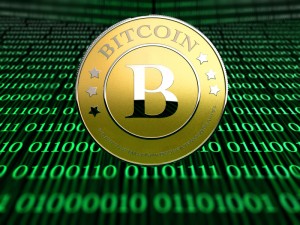Blockchain Beyond Bitcoin

Blockchain – It’s not just for Bitcoin anymore.
In 1979, Paper Mate introduced the world’s first ballpoint pen with erasable ink. Technology analysts considered it an important breakthrough and the news made headlines around the country. Many of us thought, “Wow! Finally I can write in ink and then erase it. How cool is that?” After a few moments of reflection, we had a second thought, “Why would I ever want to do that?”
Before erasable ink, we thought of ink’s permanence as a drawback and a disadvantage. After erasable ink appeared, we realized that ink’s permanence was actually its primary benefit. Write it once and you know it will never go away. If you might want to erase something, use a pencil.
In an odd way, permanence may also be the primary benefit of the blockchain technology that underlies Bitcoin. We think of databases as interactive, up-to-date records of the world as it is. The closer to real-time, the better. If you want to know what’s happening right this millisecond, high-speed databases will tell you.
But what if you want to know what happened some time ago? And what if you want assurances that the information you retrieve is tamper-proof and immutable? In other words, what if you want the electronic equivalent of permanent ink?
That’s exactly what blockchains on distributed ledgers give you. You can’t change the blockchain unless you can decrypt it – and that’s very difficult. Even if you can decrypt it on one network node, many original copies exist on other nodes. It’s fairly easy to restore the status quo ante. You can be very confident that the information you retrieve is unchanged from the original. It’s an immutable, permanent record.
The blockchain/ledger technology allows Bitcoin to keep a permanent record of all transactions. That’s important if you want to create a trusted financial system. But why stop at financial transactions? Are there other transactions that might benefit from permanent, tamper-proof records?
Indeed, there are. Here are a few that are in production or beta today:
- Ascribe – allows artists to “…lock in attribution [and] securely share and trace where your digital work spreads.”
- Storj – a potential weak point of cloud storage is that, ultimately, your data is assigned to one server. What if that server fails or is corrupted or hacked? To improve security and privacy, Storj breaks your data into blockchains and stores it on multiple servers.
- BitHealth – while Storj can store most any kind of data, BitHealth focuses on healthcare data. It claims to provide highly secure, uninterruptible, tamper-proof health data around the world.
- Everledger – where did your fancy diamond come from? How did it get here? Where is it insured? For how much? Everledger keeps a permanent, immutable “ledger for diamond certification and related transaction history.”
- Proof Of Existence or Bitproof — you want to prove that you had an idea at a certain date (preferably before anyone else). You could file a patent application. But that’s expensive, time-consuming, and public. Or you could register your document in the Proof of Existence or Bitproof blockchain databases.
- Warranteer – you buy a product that comes with a warranty, which is described in a document. The product goes bad at approximately the same time that the document goes missing. Why not save the warranty in Warranteer’s blockchain, cloud-based database?
I could go on and on. (If you want to dig deeper, click here, here, and here). While Bitcoin popularized the technology, blockchain extends far beyond the financial world. Indeed blockchain may disintermediate and disrupt supply chains around the world. If so, the world will get much more efficient. Is that what we want?